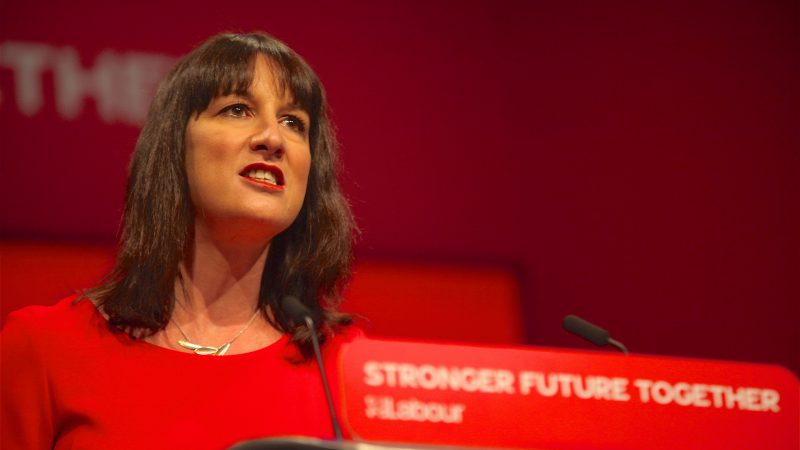
Labour has said that it would scrap “outrageous” and “unfair” energy premiums that customers using prepayments meters face as the first part of a fuller package that the opposition party is expected to announce to combat spiralling prices.
Commenting after Boris Johnson, Nadhim Zahawi and Kwasi Kwarteng met with energy company bosses on Thursday afternoon, Rachel Reeves said it is “outrageous that people on prepayment meters have to pay more for their energy”.
“Why should those with the least have to pay more to heat their homes and put the lights on? This is unjustifiable and morally wrong. As energy prices spiral, this unfair prepayment premium must end,” the Shadow Chancellor said.
“Labour would make sure that no-one pays over the odds for the same gas and electricity that everyone else gets, as well as taking broader action to help people manage their bills over the winter.”
Around 4 million domestic customers, who are often on low incomes, use prepayment meters to pay for their energy usage. Their price cap is around 2% higher than for direct debit customers, according to figures from Ofgem.
The pledge from Labour is part of a package of proposals the party is expected to outline to tackle the cost-of-living crisis after analysts predicted that typical energy bills could rise to £3,500 in October and to more than £4,200 in January.
Labour accused the Conservatives of being “missing in action” as households face a crisis of spiralling bills and prices after the government failed to agree any new support measures in its meeting with energy company executives.
Meeting with the executives on Thursday, Zahawi said the government is evaluating the “extraordinary profits” seen in certain parts of the electricity generation sector and considering “appropriate and proportionate steps to take”.
The Treasury revealed, however, that the Chancellor and the energy firms had only agreed to “work closely” over the coming weeks to “ensure that the public, including vulnerable customers, are supported”. The Prime Minister has insisted that it will fall to his successor to make “significant fiscal decisions”.
“We’re in the midst of an energy emergency that is only going to get worse. A crisis like this requires strong leadership, but instead the Conservatives have lost control of the economy and have nothing to offer,” Reeves said.
“They need to get a grip and take urgent action. Labour will take the action that’s needed to get us through this national emergency, and build the stronger, more secure economy Britain deserves.”
Former Labour Prime Minister Gordon Brown called on ministers to consider the options used by the Labour government in 2009 during the banking crisis, including guaranteed loans, equity financing and “as a last resort” operating the companies’ essential services from the public sector until the crisis is over.
Asked during a Sky News interview whether the party is against nationalisation of energy companies, Labour’s Jonathan Reynolds said: “It’s not part of our response to the cost of living because what is required there is direct financial support for people, which we would raise through a windfall tax.”
The TUC has today demanded a “pandemic-scale intervention” after analysis from the trade union federation revealed that annual bills are expected to cost more than two months’ wages in 2023 unless the government takes action.
The research noted that average take-home pay is forecast to be £2,054 per month next year, according to the Bank of England, while the energy price cap is now expected to rise to more than £4,200 in January.
“No one should struggle to get by in one of the richest countries in the world. But up and down the country, millions of families are being pushed to the brink by eye-watering energy bills,” TUC general secretary Frances O’Grady said.
“With prices set to skyrocket even further, it’s time to say enough is enough. Boris Johnson, Liz Truss and Rishi Sunak need to wake up to the size of this crisis. This requires a pandemic-scale intervention.
“Ministers must cancel the catastrophic rise to energy bills this autumn. And to make sure energy remains affordable to everyone, they should bring the energy retail companies into public ownership.”




More from LabourList
Tom Belger column: ‘Why is Labour making migrant exploitation easier?’
Ashley Dalton resigns as health minister for cancer treatment
Paul Nowak column: ‘Labour must focus on the basics’